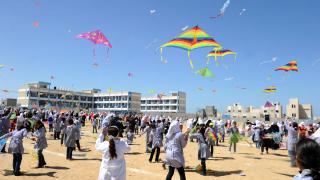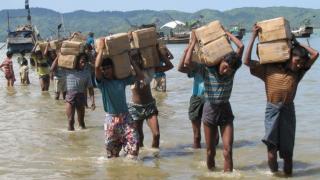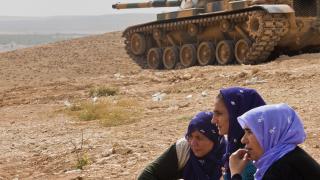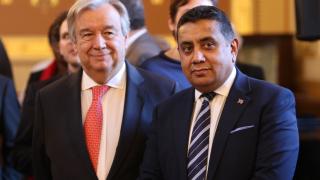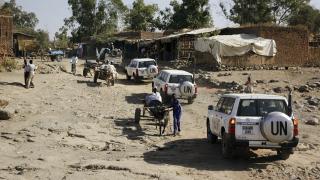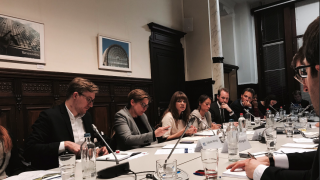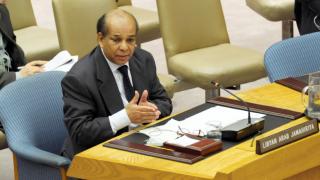
UNA-UK welcomes the strong resolution adopted by the UN Security Council on Saturday 26 February and urges states to take further action on Libya as they meet at the UN in Geneva this week.
On Saturday the UN Security Council unanimously adopted Resolution 1970, obligating all UN member states to impose an arms embargo on the country and travel ban and asset freeze on Muammar Al-Qadhafi and other senior figures in his administration,including members of his family. The Council also referred the ongoing violent repression of civilian demonstrators to the International Criminal Court (ICC).
This is just the second time that the Council has referred a case to the ICC - the first being Darfur in 2005. Under the Rome Statute that governs the ICC, proceedings related to countries that are not party to the Statute, such as Libya, can only be initiated by the Security Council or the ICC Prosecutor.
Last week, UNA-UK had urged both the Security Council and UN Human Rights Council (HRC) to exert maximum diplomatic force on Libya, in particular to isolate the Qadhafi regime and to establish an accountability proces. The HRC passed a resolution on Friday 25 February setting up an international commission of inquiry and recommending that Libya be suspended from it by the UN General Assembly.
The UK has taken a number of steps to implement the asset freeze and travel ban, including revoking the diplomatic immunity of Qadhafi and his associates, and prohibiting the export of Libyan banknotes without a licence. Earlier, the UK revoked arms export licences to the country.
Commenting on the unfolding situation,UNA-UK Chairman Sir Jeremy Greenstock pointed to the importance of ensuring the fulfilment of UN human rights standards, saying: ""the international community must go on emphasising their wish to see leaders using horrific violence against their own people held to account. The Libyan Government appears to have lost all legitimacy both internally and externally.""
Speaking to the BBC last week, Sir Jeremy cautioned against the establishment of a no-fly zone, which several countries, including the UK, are said to be considering. Sir Jeremy, who was Britain's ambassador to the UN at the time of the invasion of Iraq in 2003, said ""We all know from recent history that interventions of this kind tend to have consequences you haven't foreseen, and I don't think we could get it together quickly enough.""
However, if reports of air strikes on civilians continue, or the Libyan regime used chemical weapons on the population, for example, then this option will need to be seriously considered. If the decision to set up a no-fly zone is taken, UNA-UK strongly urges governments to seek UN Security Council backing.
TAKE ACTION
UNA-UK is urging all members and supporters to sign a petition calling for states to take further action on Libya, including:
- strengthening the Security Council's asset freeze and travel ban, including by revoking the diplomatic immunity normally accorded to heads of state and imposing a moratorium on financial transactions such as cash transfers and the export of Libyan banknotes
- ensuring that the Council's arms embargo is fully respected
- expressing support for the referral of the situation to the International Criminal Court
- taking concrete steps at this week's Arms Trade Treaty negotiations to prevent future misuse of arms by despotic regimes
- supporting the Human Rights Council's commission of inquiry to investigate alleged 'systematic human rights violations'
- further isolating Al-Qadhafi and his cohorts by suspending, through the UN General Assembly, Libya's membership of the UN Human Rights Council - a move backed by the Council itself and the Libyan delegation to the UN in Geneva
- providing support to UN agencies, notably the UN Refugee Agency and World Food Programme, including by safeguarding the passage of food and medical supplies, and of the thousands fleeing the violence
- supporting rescue efforts of foreign nationals still in the country
- ensuring that any potential decisions on establishing a no-fly zone are brought before the UN Security Council

